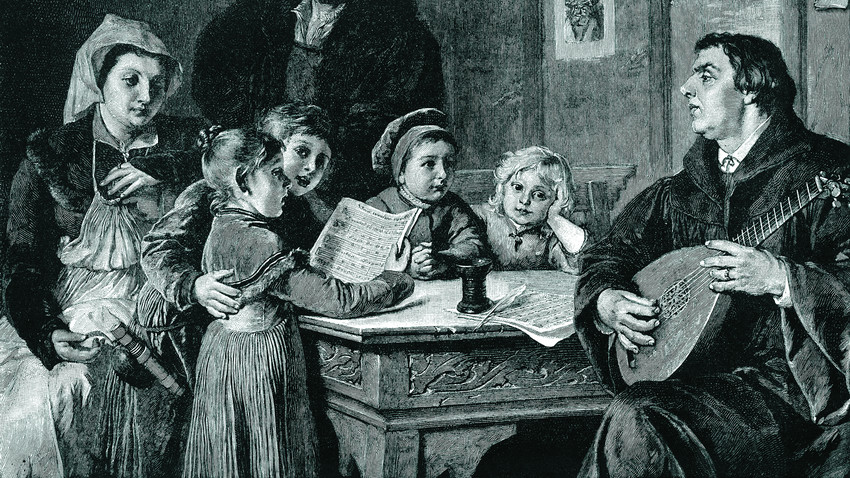
"Ein' Feste Burg Ist Unser Gott"
Even the world recognizes the battle hymn of the Reformation, "A Mighty Fortress Is Our God." What is little known is the poignant story behind it—what Germans call sitzen leben ("setting in life"). And that back-story tells much about its composer, the excommunicated monk Martin Luther (who at the time and for the rest of his life lived under an empire-wide warrant for his arrest and execution).
In July 1527 a ravaging plague swept through the town of Wittenberg. Elector Frederick urged the Reformer to flee with all who were able to. But Luther "felt duty bound by his office as a pastor to care for the sick" (Derek R. Nelson, Resilient Reformer: The Life and Thought of Martin Luther 279). And so he and his pastoral colleague, Jonas Bugenhagen, made the decision to remain in Wittenberg. He later explained why in a long letter eventually published as an essay, "Whether One May Flee from a Deadly Plague." Yes, of course you may flee, though Luther also concluded "those who lived with special and public responsibilities to others needed to remain." And that included the pastors. Tragically along with thousands of others Bugenhagen’s pregnant sister Hanna succumbed to the plague. And a postmortem caesarian section could not save her baby.
Broken over this loss, "not least because his own wife [Katrina] was suffering a difficult pregnancy," Luther scribbled a note to Jonas, "May my Christ, whom I have purely taught and confessed, be my rock and fortress" (Nelson 280). That very month the little word burg ("fortress") appeared again when he wrote "Ein’ Feste Burg Ist Unser Gott" ("A Mighty Fortress Is Our God"). While this great hymn (based upon Psalm 46) conjures up apocalyptic images of the cosmic battle between light and darkness, truth and error, this simple back-story illumines the pastoral soul of the Reformer in the midst of life’s frailty. "It was no cataclysm of empires but love for a dead mother and child that led him to sing":
God’s Word forever shall abide, No thanks to foes, who fear it;
For God, our Lord, fights by our side with weapons of the Spirit.
Were they to take our house, goods, honor, child or spouse,
Though life be wrenched away, they cannot win the day.
The Kingdom’s ours forever!"
Luther would later write: "Music is to be praised as second only to the word of God because by her are all the emotions swayed. . . . [T]his precious gift has been bestowed on men alone to remind them that they are created to praise and magnify the Lord" (Dexter Wilson Luther: Out of the Storm 276). Evidence of his deep conviction over the place of music and hymnody in the life of the Christ follower, Luther published "the first hymnbook in the language of his people . . . [with] eight hymns in the first edition of 1524, and 40 in the second edition the next year" (Companion to the Seventh-day Adventist Hymnal 489). Luther would eventually write 37 original hymns and publish nine hymnals.
"When considered alongside all the mighty tomes of biblical exegesis, Christian apologetic and religious polemic that poured from Luther’s pen, it must be conceded that, with the exception of the German Bible, nothing that he wrote had a greater or more lasting impact on ordinary people than his hymns" (Wilson 276-277).
In commemoration of this 500th anniversary of the Protestant Reformation, why don’t you pick up a well-worn hymnal (perhaps you or a family member have one on a back shelf somewhere) or go to your Apple Store or Google Play and download one of the SDA Hymnal apps (be sure and read the reviews first). You may not know the tune or be able to carry a tune—but never mind. Just like Jesus did, we can express "the gladness of [our] heart by singing psalms and heavenly songs. Often the dwellers in Nazareth heard his voice raised in praised and thanksgiving to God. He held communion with heaven in song" (Desire of Ages 73).
Just like Jesus, just like Luther, in the early morning we too may find daily refuge in God through song. "A mighty fortress" indeed!